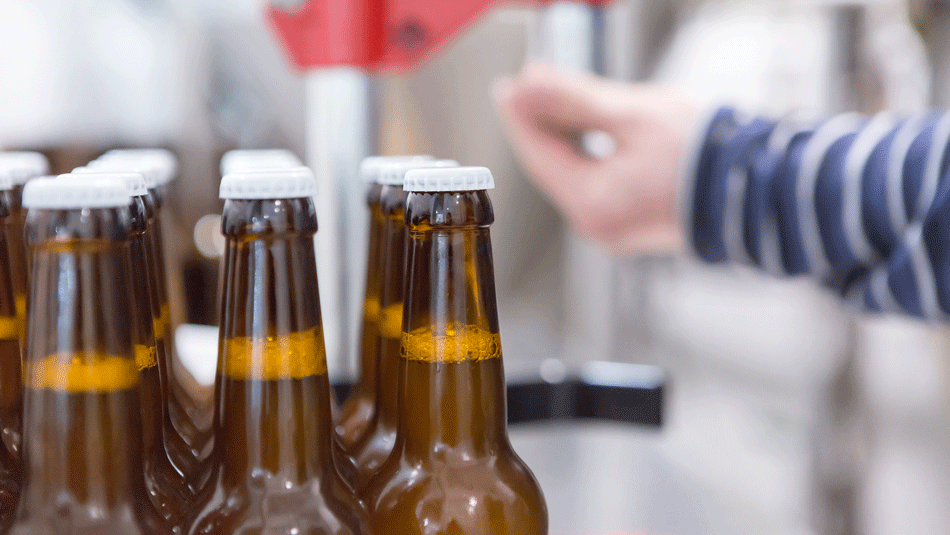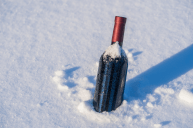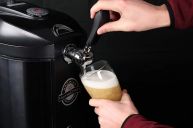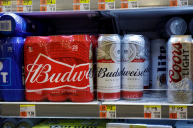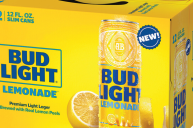There is a looming myth about beer that has spread like a disease. I'm not sure how it got started, but it has infiltrated the minds of beer drinkers across the nation and has greatly impacted their purchasing decisions. You yourself may have come across this particular myth and wondered whether it was fact or fiction. What is this particular myth I'm talking about? The one behind how beer gets skunked.
Videos by Wide Open Country
Let's picture this scenario for a second. You enter into a taproom or liquor store and are perusing your take-home options. You see that special six-pack or bomber you have to have, but it's only available cold. What do you do? Leave it because it will warm up and get skunked? Or buy it knowing there is no way to refrigerate it for hours? This is a common scenario plaguing the minds of beer consumers. The truth is, letting cold beer get warm won't make it skunky.
Having spent some time working for a couple well-established breweries, the question about letting cold beer get warm is one I encountered daily. When I came across a customer asking about purchasing warm beer, I attempted to dispel the myth. It's not temperature that effects the beer, but light leak - we'll get into this in a second.
Beer is fermented at a cooler temperature - around 65° F for ales and 55° F for lagers. When beer is bottled or canned, it is done so at a cool temperature. Once it's packaged, the beer then either gets stored in a cold box, or winds up being stored on the brewery floor - whatever warmer temperature that may be.
For the sake of this myth, let's talk about that beer stored in the cold box. That cold beer is then sold at the store - or taproom - on a shelf or in a cooler. The same beer that you're buying warm on a shelf was once stored cold. But now you're buying room temperature beer that was once stored cold at the brewery? Precisely.
https://www.instagram.com/p/BWk80_5Ae3G/?taken-by=bottlecraft
When you walk into a store and buy a room temperature beer off a shelf, it could very well have been stored in a giant cooler at the brewery. So when you buy beer cold, letting it warm up to room temperature is no different than what the store or taproom may be selling you. Re-chilling beer won't cause it to become skunked. Storing beer warm won't cause it to become skunked.
What happens when you play the cold hot, cold hot game over and over again is you shorten the shelf life. Just like food, if you microwave it again and again and again, you shorten how long it will last.
So how do you wind up with skunky bottled beer? That all has to do with light leak. When light penetrates glass bottles, it strikes the beer causing it to become "light-struck" in a photochemical reaction with ultraviolet light. UV rays cause a chemical reaction to occur in beer when it strikes. This, in part, has to do with the hop compounds.
The light causes the alpha acids in hops to react in the beer and create 3-methyl-2-butene-1-thiol - or 3-MBT. What you need to know about 3-MBT is that it basically produces a sulfuric or "skunky" flavor. So that light-struck beer is well down the path of the skunking process now.
If you've ever had a Heineken, you're probably very familiar with this flavor. Whether you have green bottles, brown bottles, or clear glass bottles, all of these colored glass bottles allow light leak. While brown glass is the best option in the bottled world, it is still susceptible to light leak. Clear is by far the worst as the translucent glass blocks the least. It's this very reason that Miller High Life uses a special formulated hop extract to prevent the beer from becoming skunked or giving off offensive aromas.
To avoid light leak, or light exposure, many craft beer brewers have started canning, and most have ditched green glass and clear bottles overall. There are an array of benefits that come with canning, but let's save that for another day. For now, remember when you're shopping that temperature doesn't cause skunky beer, light does. So chug that Corona bottle, you don't want to risk it!
